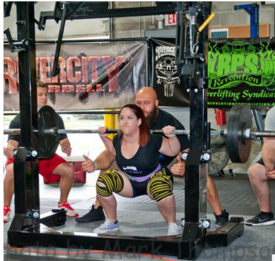A couple of probably dumb questions...

JTick
Posts: 2,131 Member
1) I understand that muscle is difficult to build. I know that it requires a calorie surplus unless you are just starting out with a lot of fat surplus and can then get minimal gains the first few months. I know that muscle is more dense than fat, so you should go by what you see in the mirror vs. what the scale says.
What I DON'T understand is how you lose inches. I see ridiculously awesome results from people who did the 30DS. But, they tend to not lose very many lbs, and are not building much (if any at all) muscle, so where do those inches GO? If it was fat cells shrinking, wouldn't there be more weight loss in those 30 days?
2) Along those same lines...what is happening in the body when muscles seem to "grow"? i.e. In the 30DS shred example again...many times by the end of the 30DS the people seem to have "grown" muscles (biceps specifically). But I know that it is more difficult than that. Is this increased muscle from the fat layer going away? But again, many of these people tend to not lose much weight, so why are these muscles suddenly visible?
Like I said, these are probably dumb questions and have super simple answers LOL. Just something I've always been curious about!
What I DON'T understand is how you lose inches. I see ridiculously awesome results from people who did the 30DS. But, they tend to not lose very many lbs, and are not building much (if any at all) muscle, so where do those inches GO? If it was fat cells shrinking, wouldn't there be more weight loss in those 30 days?
2) Along those same lines...what is happening in the body when muscles seem to "grow"? i.e. In the 30DS shred example again...many times by the end of the 30DS the people seem to have "grown" muscles (biceps specifically). But I know that it is more difficult than that. Is this increased muscle from the fat layer going away? But again, many of these people tend to not lose much weight, so why are these muscles suddenly visible?
Like I said, these are probably dumb questions and have super simple answers LOL. Just something I've always been curious about!
0
Replies
-
Bump0
-
1) When you start any sort of physical activity, your body adapts. It moves fat deposits around to be closer to the areas where it is needed. (closer to the muscles) Also, you may be losing some fat, but you might be adding some water. This can offset any early weight loss.
2) Yes, the fat layer is probably slightly reduced, but mostly, your muscles tend to swell a bit when you start using them (water, fat stores etc) Also, what you said...you can get minimal muscle gains when you start out the first time 0
0 -
Not a dumb question. Here is some information I have looked up and copied here:
Hypertrophy (increasing Muscle Mass)
Independent of strength and performance measures, muscles can be induced to grow larger by a number of factors, including hormone signaling, developmental factors, strength training, and disease. Contrary to popular belief, the number of muscle fibres cannot be increased through exercise. Instead, muscles grow larger through a combination of muscle cell growth as new protein filaments are added along with additional mass provided by undifferentiated satellite cells alongside the existing muscle cells.[11] Muscle fibres have a limited capacity for growth through hypertrophy and some believe they split through hyperplasia if subject to increased demand.[citation needed]
Biological factors such as age and hormone levels can affect muscle hypertrophy. During puberty in males, hypertrophy occurs at an accelerated rate as the levels of growth-stimulating hormones produced by the body increase. Natural hypertrophy normally stops at full growth in the late teens. As testosterone is one of the body's major growth hormones, on average, men find hypertrophy much easier to achieve than women. Taking additional testosterone or other anabolic steroids will increase muscular hypertrophy.
Muscular, spinal and neural factors all affect muscle building. Sometimes a person may notice an increase in strength in a given muscle even though only its opposite has been subject to exercise, such as when a bodybuilder finds her left biceps stronger after completing a regimen focusing only on the right biceps. This phenomenon is called cross education.[citation needed]0
This discussion has been closed.
Categories
- All Categories
- 1.4M Health, Wellness and Goals
- 398.2K Introduce Yourself
- 44.7K Getting Started
- 261K Health and Weight Loss
- 176.4K Food and Nutrition
- 47.7K Recipes
- 233K Fitness and Exercise
- 462 Sleep, Mindfulness and Overall Wellness
- 6.5K Goal: Maintaining Weight
- 8.7K Goal: Gaining Weight and Body Building
- 153.5K Motivation and Support
- 8.4K Challenges
- 1.4K Debate Club
- 96.5K Chit-Chat
- 2.6K Fun and Games
- 4.8K MyFitnessPal Information
- 12 News and Announcements
- 21 MyFitnessPal Academy
- 1.6K Feature Suggestions and Ideas
- 3.2K MyFitnessPal Tech Support Questions

